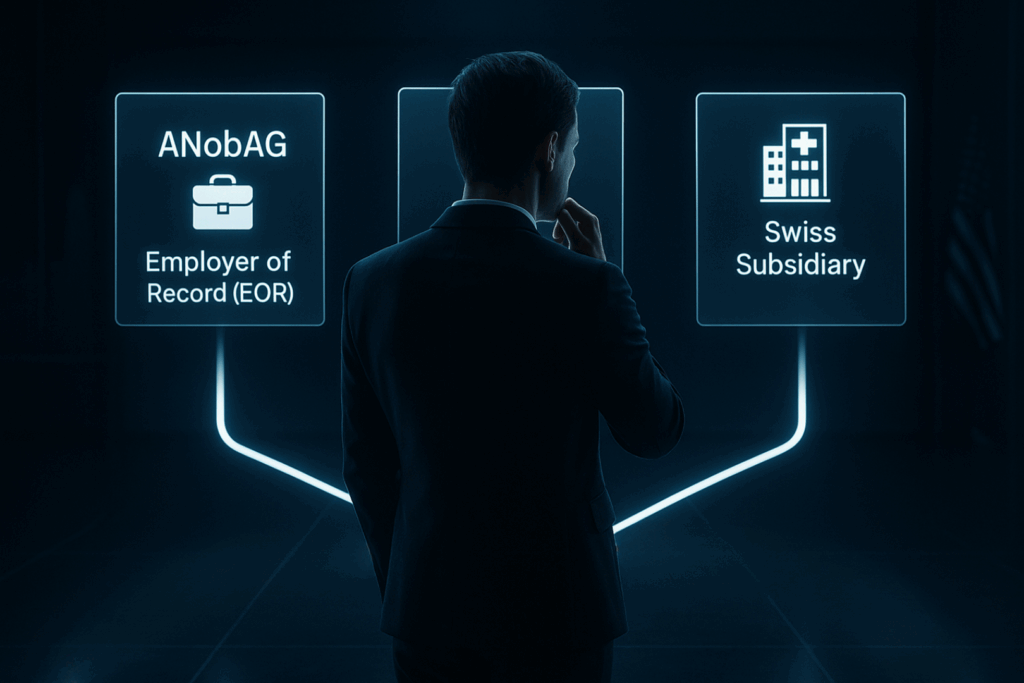Immigrating to Switzerland
Overview of the different work/establishment passes
Short-term residence permit (L permit)
For EU/EFTA nationals, a short-term residence permit (L permit) is issued if the person is staying in Switzerland for a limited period of time and only up to 12 months (with or without gainful employment). The L permit can be extended up to 48 months.
If an employment contract with a Swiss employer is presented in which a temporary employment relationship of between three months and less than one year is documented, the employee is entitled to the L permit.
In principle, L permits can be issued to all EU/EFTA nationals who reside in Switzerland even without gainful employment. It should be noted that the L permit does not entitle the holder to claim social security benefits.
Non-EU/EFTA nationals are only entitled to an L permit in exceptional cases.
Residence permit (B permit)
For EU/EFTA nationals, the validity period of the B permit is five years; for non-EU/EFTA nationals, one year.
The B permit is issued if an EU/EFTA national can prove permanent employment or temporary employment of at least 365 days.
EU/EFTA citizens who are not gainfully employed receive a B permit if they can prove that they have sufficient financial resources and adequate health and accident insurance.
For non-EU/EFTA nationals, a B permit is only issued if the quota in the canton of residence has not yet been exhausted.
Cross-border commuter permit (G permit)
A cross-border commuter is an EU/EFTA national who lives abroad in the EU/EFTA and works in Switzerland. The prerequisite is that the employee returns to his or her place of residence abroad at least once a week.
If there is an employment contract that is either indefinite or documents temporary employment of more than one year, the G-card is valid for five years. In the case of employment relationships of shorter duration, the G-card is valid for the duration of the activity.
Non-EU/EFTA nationals are only issued a G permit if they have already lived in the EU/EFTA country for at least six months with a residence permit.
Settlement permit (C permit)
For EU/EFTA nationals, the validity period of the B permit is five years; for non-EU/EFTA nationals, one year.
The B permit is issued if an EU/EFTA national can prove permanent employment or temporary employment of at least 365 days.
EU/EFTA citizens who are not gainfully employed receive a B permit if they can prove that they have sufficient financial resources and adequate health and accident insurance.
For non-EU/EFTA nationals, a B permit is only issued if the quota in the canton of residence has not yet been exhausted.
Settlement permit (C permit)
The C permit entitles the holder to unlimited residence in Switzerland. It can be issued after a person has lived in Switzerland continuously for either five or ten years. Different time limits apply depending on the person’s nationality. For EU/EFTA nationals from the following countries, the C permit is issued after five years:
Belgium
Denmark
Germany
Finland
France
Greece
Ireland
Italy
Luxembourg
Netherlands
Austria
Portugal
Sweden
Spain
EFTA: Iceland, Liechtenstein, Norway
For nationals from other states, either a five or ten year period applies.
Generally, a C permit is only issued after strict examination of the person. For example, there must be no entry in the criminal record and, depending on the canton, proof of language skills must be provided.



